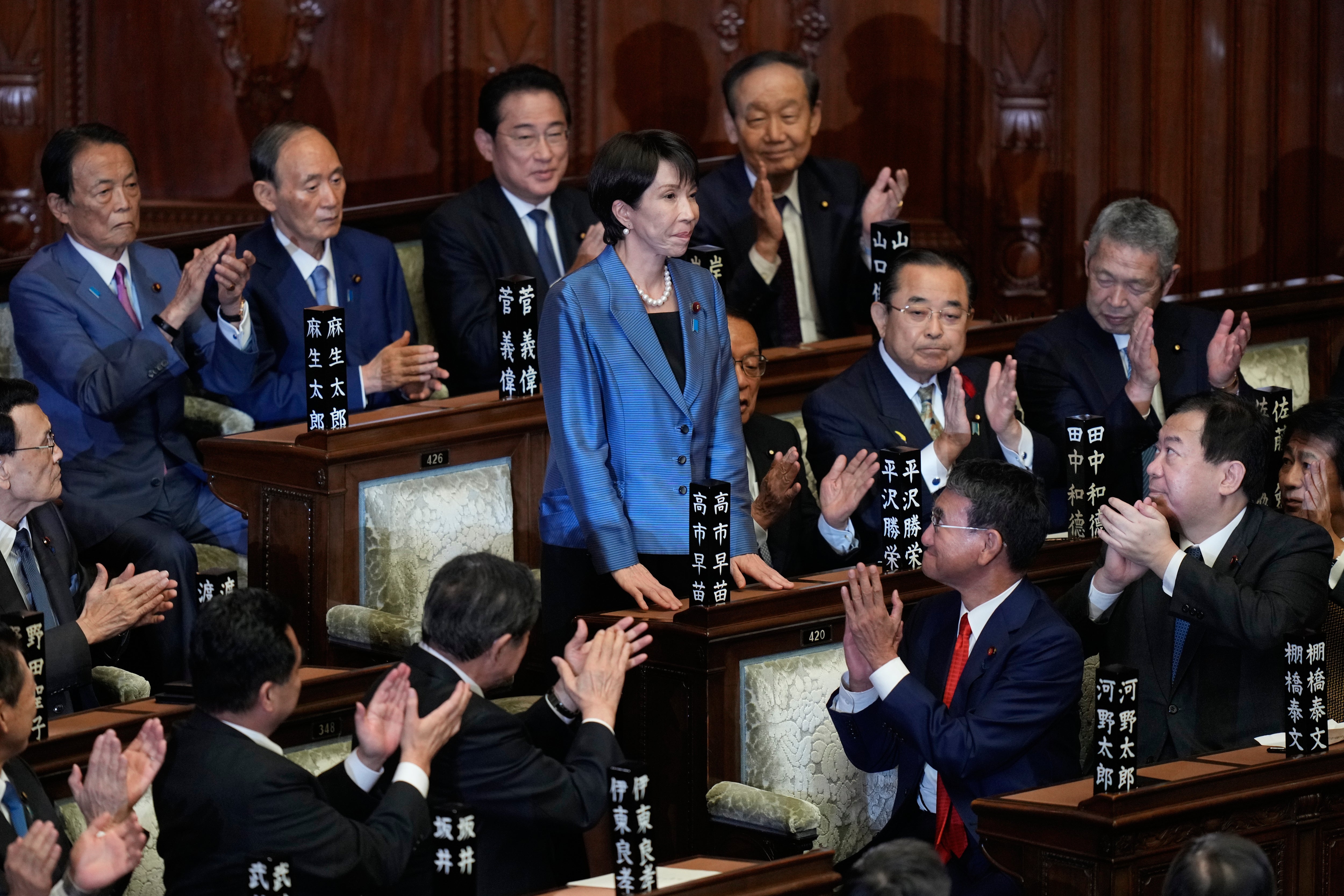Japan’s newly elected prime minister Sanae Takaichi shared that she had a personal liking for South Korean culture, as she sought to ease concerns in Seoul about Japan’s future policy direction amid longstanding tensions between the two nations.
In her inaugural press briefing on Tuesday, Takaichi said she really likes “Korean ‘gim’ (dried and seasoned seaweed), I use Korean cosmetics, and I watch Korean dramas”.
Her comments come after her historic appointment on 21 October as Japan’s first female prime minister, after her party Liberal Democratic Party (LDP) entered a coalition with the right-wing Japan Innovation Party (Ishin), giving her the parliamentary support needed to avoid a runoff.
At the press conference, she struck what appeared to be a conciliatory tone, calling the relationship between Japan and South Korea “now greater than ever”, adding that she hoped to meet South Korean president Lee Jae Myung soon.
“I want to move our ties forward in a stable, future-oriented way, building on the foundation laid by past administrations,” she said, according to The Korea Times.
In Seoul, the foreign ministry responded by saying it will continue to maintain the “positive momentum” in relations, according to Yonhap.
“We will continue to closely communicate and cooperate with Japan's new cabinet to maintain the positive momentum in bilateral relations. As neighbouring countries and global partners amid rapidly changing geopolitical dynamics and trade order, we hope the two sides will work together to further advance a future-oriented relationship,” said ministry spokesperson Lee Jae Woong.
Years of Takaichi’s hardline positions on history and defence have caused unease in South Korea, as she has challenged key elements of Japan’s wartime apologies and advocated a more unapologetic national stance on security and history.
“She has never handled foreign affairs directly, so it’s difficult to forecast her approach,” Mieko Nakabayashi, professor of political science at Waseda University, told Reuters.
“She’s made comments that please the right-wing, pledging to visit Yasukuni Shrine and taking a tough stance toward South Korea, but whether she sticks to that or shifts to realism remains to be seen.”

While campaigning, she told the conservative Sankei Shimbun newspaper in September that she believed a Japanese minister should “unapologetically attend” the annual 22 February ceremony in Shimane Prefecture that marked Japan’s sovereignty claim over the islets known in Japan as Takeshima and in Korea as Dokdo, territory that is controlled by Seoul but claimed by Tokyo.
“There’s no need to gauge what Seoul might think,” she said.
Earlier, in 2013, while serving as head of the LDP’s policy-research council, Takaichi urged then-prime minister Shinzo Abe to reconsider Japan’s past wartime apologies and expand its regional presence.
According to the Wall Street Journal, she said Abe should issue a new statement that backtracks on some previous apologies for wartime actions and “protects the honour and pride” of the nation.
Takaichi has also made repeated visits to the Yasukuni Shrine, which honours Japan’s war dead, including convicted war criminals. The site is viewed in South Korea and China as a symbol of Japan’s wartime aggression and there is close scrutiny on Japanese politicians who visit the shrine on 15 August, the anniversary of Japan’s surrender in the Second World War.
Takaichi refrained from visiting the shrine’s autumn festival this year and instead sent a ritual offering, according to The Japan Times, which could be interpreted as her hoping to avoid any immediate diplomatic fallout from China and South Korea just as she prepared to take office.
After taking office, Takaichi appeared to moderate her tone toward Seoul, saying she supported continued cooperation with South Korea and the United States on regional security.
“Trilateral cooperation is more important than ever,” she said.







